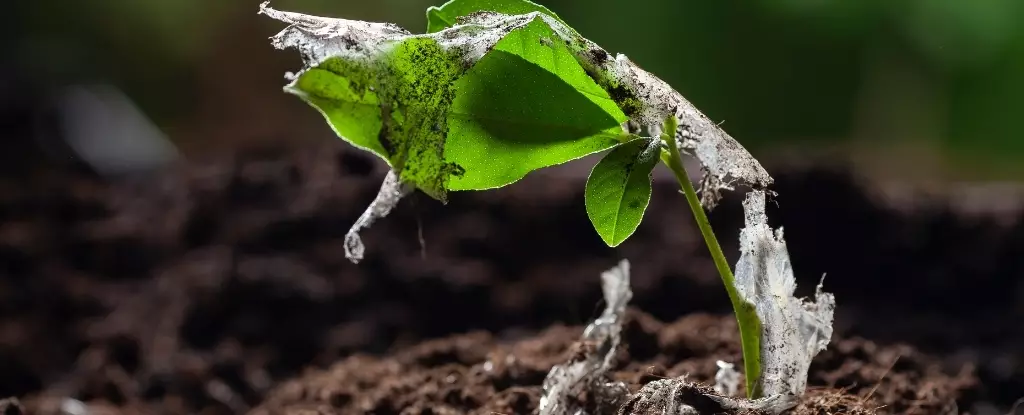Every day, as we mindlessly munch on our salads or enjoy a slice of bread, we might be unknowingly ingesting microscopic particles of plastic. Recent revelations regarding the infiltration of microplastics in our agricultural systems serve as a timely wake-up call. These aren’t only mere contaminants; they threaten the very foundation of our health and the integrity of our food supply. The sheer volume of tiny plastic particles that have found their way into our soil is staggering, with estimates indicating that Europe and North America contribute hundreds of thousands of tonnes to this looming catastrophe each year. It is nothing short of alarming that we have turned our once fertile lands into what environmental biotechnologist Joseph Boctor aptly describes as a “plastic sink.”
The Agricultural Techniques at Fault
Farmers, driven by the overwhelming demand for productivity, have turned to techniques like plastic mulching, which although effective, comes with severe long-term consequences. This practice of laying plastic over soils to enhance moisture retention and suppress weeds has become a double-edged sword. Initially, the increase in crop yield and the reduced need for irrigation are seen as victories—yet the hidden costs of plastic infiltrating our food systems are staggering. Boctor’s team found that techniques lauded for their efficacy are actually the primary sources of the microplastic problem, representing a significant turning point in how we understand the relationship between farming methods and environmental health.
Surprisingly, it’s not just plastic mulch that is responsible for this pollution; sources such as sewage sludge and organic fertilizers are also culprits. We are left to ponder: Are we genuinely prioritizing the sustainability of our farming practices, or have we become blinded by the metrics of efficiency?
Pathways to Our Plates: How Microplastics Enter Our Food Chain
Microplastics infiltrate plants through various avenues. This insidious process involves endocytosis—where plant cells absorb materials from their surroundings—or even respiration, as airborne plastic particles make their way into the plant’s tissues. The fact that these tiny plastic fragments can be taken up through the roots further complicates our food safety concerns. If we pause and consider the implications, it becomes clear that we are facing more than just a contamination crisis; we are staring into the abyss of a human health issue that is quietly unfolding beneath our very feet.
A significant consequence of this bioaccumulation is not just the potential for diminished crop yields but the direct repercussions on human health. Emerging research indicates that these remnants of our plastic addiction can adversely affect fertility, cardiovascular health, and even the integrity of our genetic material. This is not just a matter of environmental degradation; this is an existential threat that jeopardizes our offspring.
The Silent Killer: Additives and Their Consequences
What compounds the peril posed by microplastics is the myriad of additives woven into their very fibers—chemical components like phthalates and polybrominated diphenyl ethers (PBDEs), notorious for their links to hormonal and reproductive disorders. Astonishingly, some evidence suggests that these harmful substances can cross the placental barrier, putting unborn children at risk. The thought of our newborns being the unwitting victims of a crisis we perpetuated is thoroughly chilling.
Yet, what troubles me most is the systemic lack of transparency and urgency surrounding this issue. Researchers like Boctor are not just highlighting a nuisance; they are unearthing profound ethical dilemmas. How is it that a problem so intimately tied to public health and safety has been allowed to thrive beneath layers of ignorance? The plastic crisis is not simply a matter for environmentalists but should invoke the attention of policymakers and consumers alike.
A Call to Action: The Urgency for Change
It is imperative for us as a society to confront these realities head-on. The dialogue surrounding agricultural practices must evolve from one of mere productivity to encompass sustainability and health. We need regulatory frameworks that prioritize transparency and accountability from industries involved in the agricultural supply chain. The time for action is now—because what is at stake is nothing less than the health of future generations and the planet itself. Tinkering with loopholes or stifling vital research will no longer suffice; we must electrify both our awareness and our actions before we allow our food systems to become irrevocably compromised.



Leave a Reply